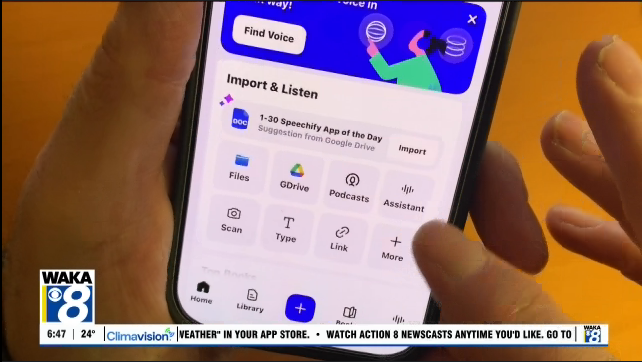What The Tech: How the elderly can protect themselves from Facebook scammers
BY JAMEY TUCKER, Consumer Technology Reporter
Scammers will target anyone. Young people are often lured by shopping scams and fake job offers. People in their 30s and 40s fall for impersonation and investment scams. Seniors are targeted with just about everything.
The FBI says Americans over 60 lost nearly five billion dollars to scams last year. Much of it started on social media.
During Cybersecurity Awareness Month, Facebook’s parent company, Meta, is introducing new tools to help older adults recognize and avoid scams.
Meta reports it deleted nearly eight million fake Facebook and Instagram accounts this year. Many of those accounts were linked to spam centers targeting older users through Facebook, Instagram, Messenger, and WhatsApp.
Messenger now includes scam detection in chat. It analyzes messages and pops up a warning if a user might be talking to a scammer. It also explains common scams, what to do next, and gives one-tap options to report or block the suspicious account.
On Facebook and Instagram, pop-ups remind users to run Security Checkup. This feature reviews privacy and security settings and suggests changes, such as setting up passkeys for login. Passkeys make it easier to log in securely and harder for scammers to take over an account.
WhatsApp is also adding a new alert. If a user tries to share their screen with someone they do not know, a warning appears. Scammers often ask people to share their screen so they can steal banking information or security codes.
Some of these new protections work automatically.
Others, such as passkeys and security reviews, still need to be turned on by the user.
The new tools are rolling out now and could keep people from losing money or being tricked by
scammers pretending to be someone they trust.






